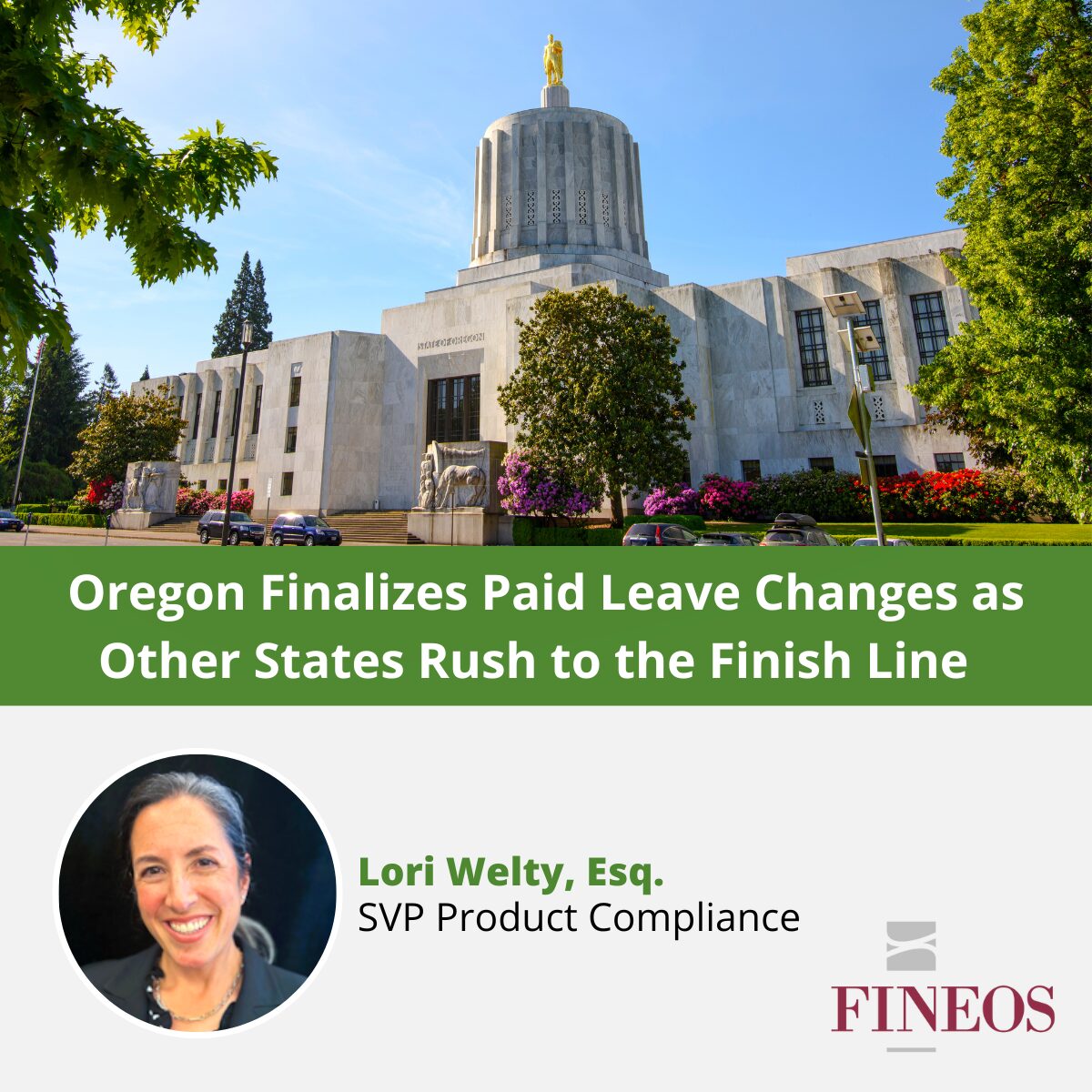The Colorado Department of Labor and Employment (CDLE) adopted final regulations to provide detailed clarification and guidance for the paid family and medical leave (PFML) program that was passed through a ballot initiative in 2020 and will start paying benefits on January 1, 2024.
Most provisions of the PFML program remain unchanged, such as the covered leave reasons and leave durations. The new regulations amend and clarify claim administration details and employer responsibilities, including work schedules, holidays, notice requirements and job reinstatement.
Calculating PFML Based on Work Schedule
These amendments are important because how long an employee can be out on PFML and how much leave they can receive are calculated based on their regular work schedule.
The rules on the determination of an individual’s regular work schedule were amended to consider their typical work schedule, and only require the use of a four-week lookback if their average weekly hours cannot be determined. The regular work schedule is calculated as of the first date of the leave. If someone’s regular work schedule increases or decreases during their leave, the claimant must provide notice of the change, and their PFML benefits will be adjusted because of that increase or decrease.
PFLM Benefit Application over Holidays
Whether someone can receive PFML benefits for a holiday will depend on whether they are taking a full or partial week of leave. When the employee is taking a full week of PFML leave, the week is counted against their entitlement, and they will receive wage replacement benefits for the entire week. If the employee is taking a partial week of PFML leave, the holiday will not count against their entitlement, and they will not receive wage replacement benefits for the holiday unless they were otherwise scheduled and expected to work during the holiday.
This aligns the Colorado regulations with existing federal Family and Medical Leave Act (FMLA) regulations on holidays, while clarifying the employee’s right to wage replacement benefits, which is unaccounted for in the unpaid FMLA program.
PFML Notification by Employers
Employers must conspicuously post the PFML program notice in their workplace. Where the employer does not have a physical workplace or where their employees telework, the program notice must be posted on their internal website or sent via email. Employers must also send the program notice to employees upon hiring and within five days of learning of the employee’s PFML-eligible event (ex. if an employee says they will be absent due to a planned surgery or parental leave).
The program notice must be in English, Spanish, and in any language representing the first language spoken by at least 5% of the employer’s workforce. The program notice is available in several languages on Colorado’s website.
Employee Notice Requirements and Job Reinstatement
A claimant is encouraged ─ but not required by law ─ to reasonably schedule their PFML leave to not unduly disrupt their employer’s operations. The new regulations clarify that the failure to schedule leave or properly notify their employer of the need for leave does not mean that the claim will be denied for failure to comply with the notice requirements.
The regulations also make clear that an employer is not required to reinstate an employee to their job where the employee fails to provide notice for their leave, unless the need for leave was not foreseeable and unusual circumstances justify the failure to comply.
How is FINEOS helping carriers and employers prepare for paid leave programs?
FINEOS is ready to administer the CO PFML law, especially for carriers seeking private plans to comply with CO PFML. Using modern insurance technology solutions like the FINEOS Platform can help insurance carriers remain agile and competitive when leave legislation is passed. Learn more about how a modern, integrated disability and absence management (IDAM) solution can help your organization adapt to sudden changes and remain in compliance.


